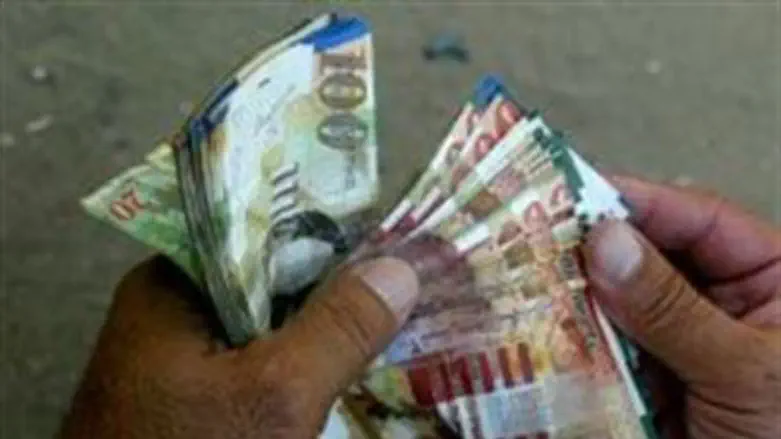
No fewer than 63.5% of Israelis are frequently in "minus" condition in their bank accounts. So finds a Channel 10 survey, and Bank of Israel is planning to find out why.
One-seventh of Israelis are always overdrawn, the survey found, and another eighth undergo this experience "most of the time." Another 36% are "sometimes" in overdraft.
Bank of Israel plans, for the first time, to find out the reasons for this national plague, and to detail its dangers. Its survey will map out those who are overdrawn according to income level and geographic location.
Four years ago, the national debt owed by households to their banks added up to 106.8 billion shekels. This has now risen by 18%, to 126 billion shekels. Rising housing prices, as well as more moderate rises in other areas, are clearly a major contributory factor to the overdraft problem.
The problem crosses all demographic lines: salaried employees and small business owners, high- and low-income earners, religious, secular, large families and small, young and old. The only major sector that does not suffer greatly from overdraft problems are young couples and singles who have not yet taken out a mortgage for a home.
Despite these findings, a report by Organization for Economic Cooperation and Development (OECD) shows that in the past four years, Israel's cost-of-living increase was less than that of other OECD countries: 7.6%, compared to 9.1%.
Also on the bright side, the price of gas dropped this week nearly 3.7%, to 7.05 shekels per liter. With the increase in the value of the dollar, this signifies an approximate 16-cent drop in the price of a liter (just over a quart), to $1.87.
Jewish Law forbids paying or taking interest, and therefore the state of overdraft is permitted, with difficulty, only if there is a special halakhic arrangement known as "heter iska".
Rabbi Eliezer Melamed of Har Brachah has ruled that one should cover his overdraft before giving the customary tithes for charity. However, he adds, "if one cannot resist wasting his money and always finds himself in overdraft, then he should give a tenth for charity even then, so that charity should not be less important than the other luxuries for which he becomes overdrawn."